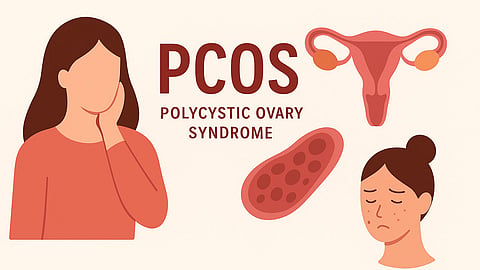How Society Shapes the Psychological Struggles of Women with PCOS
Liza Hazarika, Psychologist (MA Clinical Psychology), spoke to MedBound Times about the body image issues and stigma related to PCOS.
"In our society we hold different kind of beauty standards, right? A clear skin and a certain kind of body shape, hair growth or just hair on body is considered unhygienic which is again not at all, it's completely the different, the opposite actually."
"So, some women with PCOS can have a lot of body image issues because of the physiological changes, because of weight, pimples or excessive hair on their body."
Liza commented that some women with PCOS also consider themselves less confident because of the insecurities related to their bodies.
"They can experience constant mood swings. They may feel sad, low, anxious, nervous, or even hyperactive. So, there are difficulties in their lifestyle, in their mood," she added.


